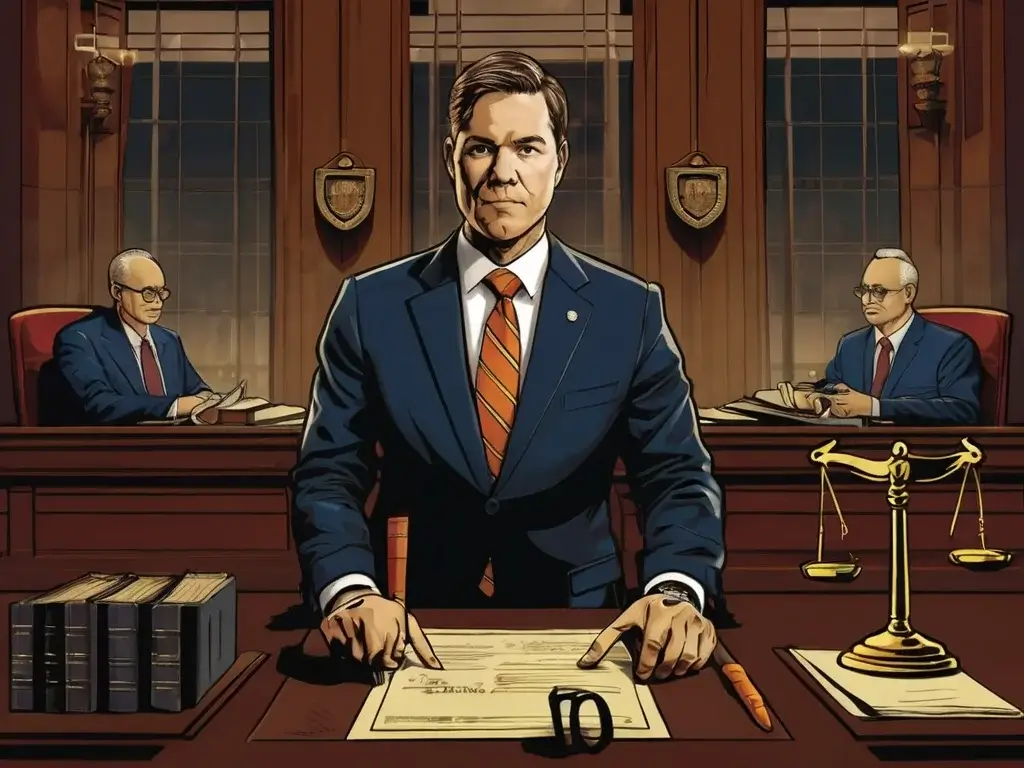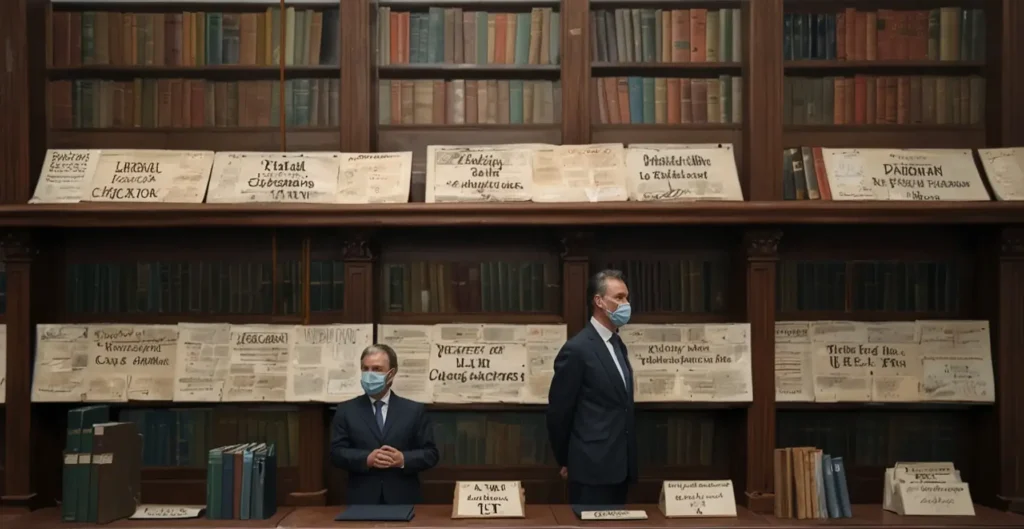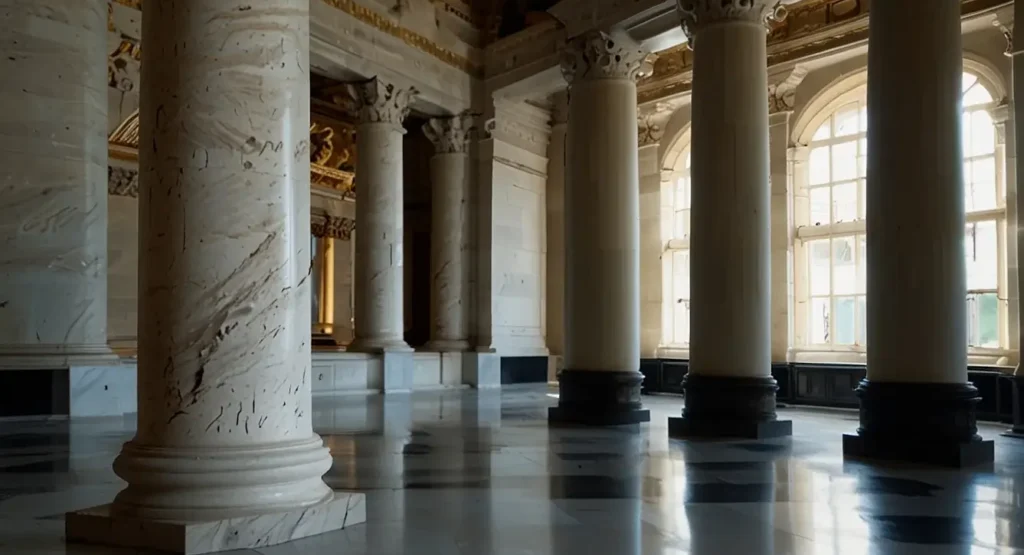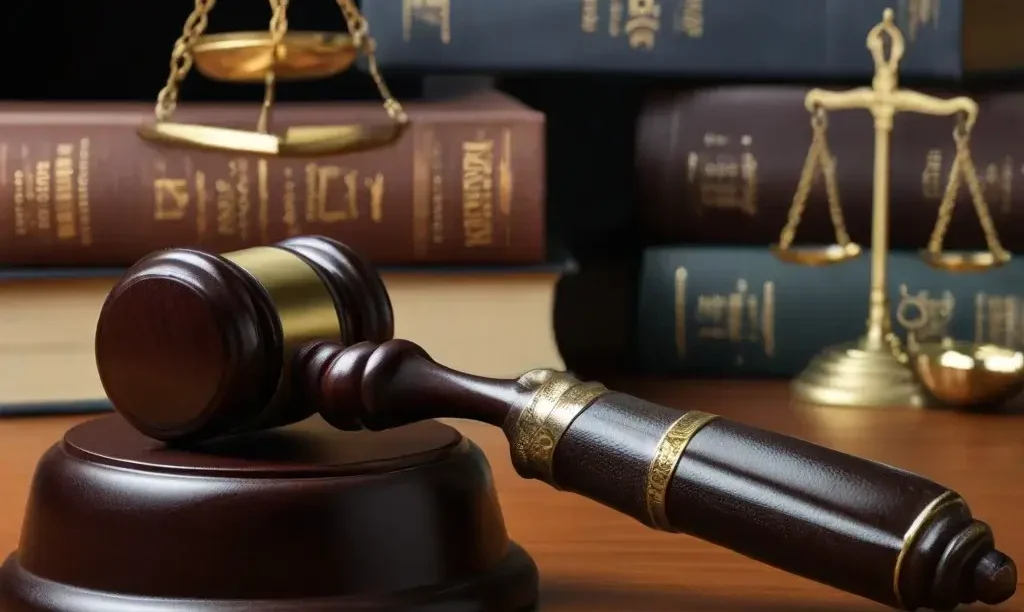The primary goal of the judicial organization is to ensure the fair administration of justice and resolution of conflicts, whether they arise between individuals or involve citizens and states. It ensures that justice is served through a transparent, unbiased, and equitable trial for individuals facing different charges. Courts are responsible for sorting out and investigating the facts, as well as punishing individuals who have violated state laws. Additionally, they declare and determine rights in civil matters. In modern states, courts have a wide range of functions, but some of their most important ones include;
Functions of Judiciary
In modern states, courts have a wide range of functions, but some of their most important ones include;
Provision of Justice
The primary role of the judiciary is to ensure that justice is served to individuals who seek it. It administers punishment to individuals who, following a fair trial, are determined to have violated the laws of the state or infringed upon the rights of others. Individuals who feel wronged have the option to pursue legal action in order to address their grievances and potentially receive compensation. Individuals have the option to take action if they feel their rights are at risk or if they have experienced a loss. The judiciary determines the appropriate quantity and quality of punishment for criminals. It handles all cases related to the awarding of compensation to individuals.
Interpretation of Laws
Interpreting and applying laws to specific cases is one of the primary responsibilities of the judiciary. As part of their role, judges analyze and enforce laws when resolving disputes. Every law requires a thorough interpretation in order to be effectively applied to individual cases. Judges are responsible for carrying out this function. Judges have the power to interpret the law as they see fit.
Law-making
The judiciary also has a role in law-making. The decisions made by the courts play a crucial role in shaping the interpretation, essence, and extent of the laws enacted by the legislature. The interpretation of laws by the judiciary plays a crucial role in shaping and defining the laws.
In addition, the decisions made by higher courts, which serve as Courts of Records, must be followed by lower courts. The latter can make decisions based on the rulings of higher courts. Judicial decisions are considered a source of law.
Equity
When a law is unclear or seems to conflict with another law, judges rely on their sense of justice, fairness, impartiality, honesty, and wisdom to make decisions in cases. Such decisions always involve the creation of laws. It is commonly referred to as equity legislation.
Protection of Rights
The judiciary has a crucial role in protecting the rights of the people. Every individual has the fundamental right to seek judicial protection if their rights are violated or at risk of being violated, whether by the government, private organizations, or fellow citizens. In all such cases, it is the duty of the judiciary to safeguard the rights of the people.
Protect the Constitution
The judiciary serves as the protector of the Constitution. The Constitution serves as the ultimate law of the nation, with the judiciary entrusted to interpret and safeguard its provisions. In order to fulfill this role, the judiciary has the authority to review laws and assess whether they align with the principles and intentions of the Constitution. If a law is deemed unconstitutional, the judiciary rejects it, rendering it invalid for the future. The power of the court to review and interpret laws is known as judicial review.
Direct the Executives
The judiciary plays a crucial role in not only delivering judgments and resolving disputes, but also ensuring their enforcement. It has the ability to guide the executive in implementing its decisions. It has the ability to call upon individuals and extract the truth directly from them. In case any person is held:

- Failing to comply with any court decision,
- Acting in defiance of the court’s instructions,
- Providing false information to the court,
- Not attending a court hearing for a case in which one is involved, the court has the authority to punish individuals for contempt of court.
Settlement of Disputes
In a federal system, the judiciary plays a crucial role as the protector of the constitution and the mediator of conflicts between the central government and the states. It serves as a neutral mediator between the central government and state governments, as well as among the states. The judiciary is responsible for resolving all legal disputes between the centre and state.
Administer Judicial Affairs
The judiciary operates independently from the government. It operates independently from both the legislative and executive branches. It functions as a distinct and autonomous entity, complete with its own structure and personnel. It has the authority to determine the structure of the judicial system in the state. It establishes and upholds its own set of regulations. These regulations govern the recruitment and employment of individuals who work in the courts, including magistrates and other personnel. It ensures that rules are in place and enforced to promote the smooth and effective functioning of judicial administration.
Adviser
Oftentimes, it falls upon the courts to provide advisory opinions to the rulers regarding legal matters. For example, the President of Pakistan holds the authority to refer any matter of law or fact that is of significant public importance to the attention of the Supreme Court.
Conduct Judicial Inquiries
Judges are frequently asked to lead Enquiry Commissions that investigate significant incidents stemming from perceived mistakes or negligence by the government or public servants. Commissions of enquiry led by a single judge are also occasionally established to investigate significant and complex issues and problems.
Miscellaneous Functions
In addition to its primary functions, the judiciary also carries out various other duties. Some of the functions include appointing specific local officials of the court and selecting clerical and other employees. Cases involving the granting of licenses, patents, and copyrights, the appointment of guardians and trustees, the validation of wills, the assignment of trustees to protect the assets of minors, the resolution of property and inheritance disputes, the administration of estates of deceased individuals, the selection of receivers, the naturalization of aliens, marriage and divorce cases, election petitions, and similar matters.
In conclusion, through all these functions, the Judiciary plays a crucial role in each state. It also has a significant impact on the evolution of the Constitution by exercising its authority to interpret and protect it from any abuses by the legislative and executive branches.






